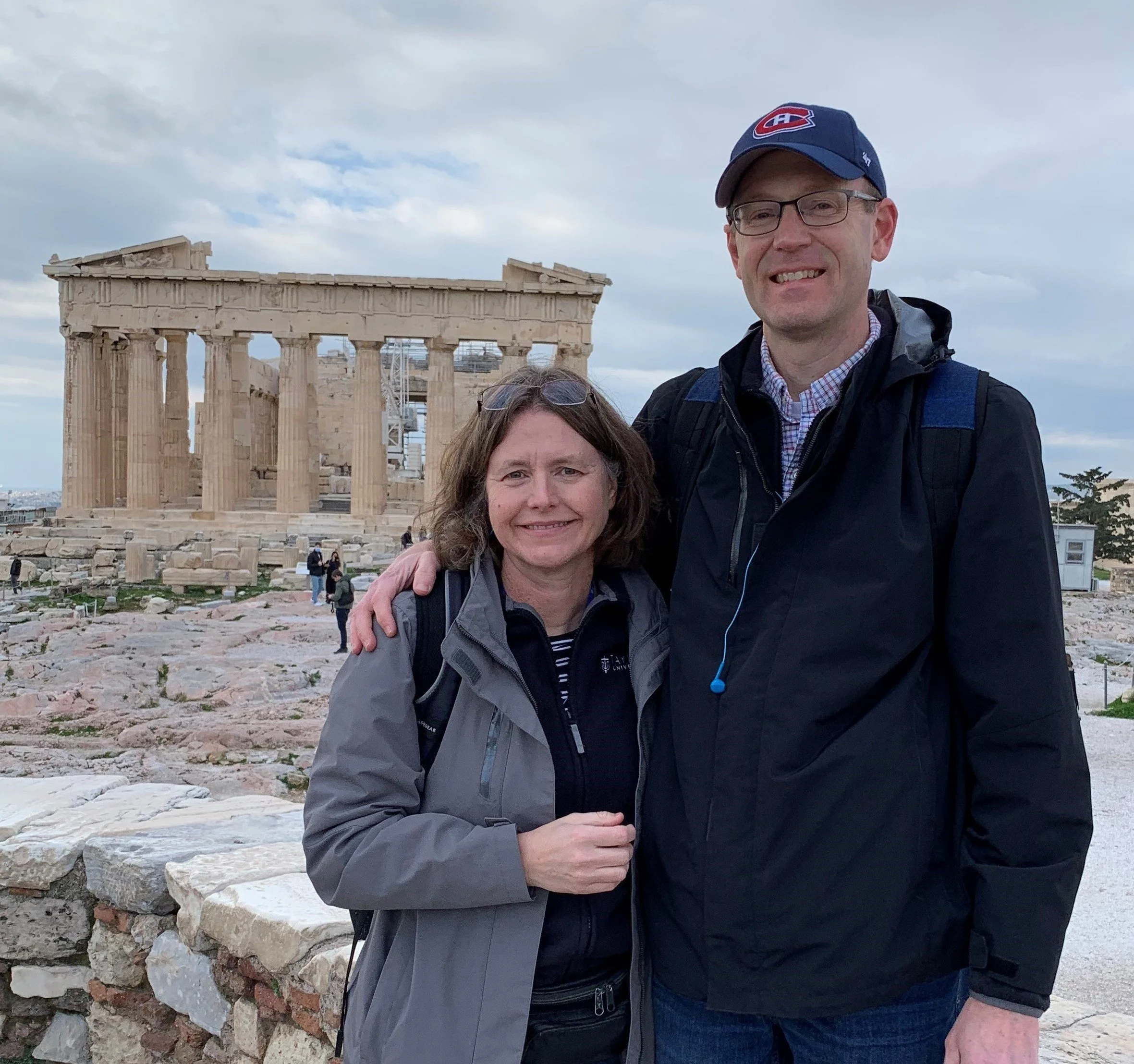Thinking About “Then”, Now - Intergenerational Care
What comes to your mind when you think about your future plans? Do you dream about pursuing a career, starting and raising a family, watching friendships grow, participating in a church, developing new hobbies, or traveling?
All of these are natural goals to pursue. I remember having these hopes and expectations when I was younger! But one thing few of us plan for in our future is taking care of parents and other elderly relatives.
God values family, and we should too. The Bible promotes providing financial, physical, and relational support for older family members who are in need. In 1 Timothy 5:4, Paul describes the opportunity for children and grandchildren “to put their religion into practice” (NIV) by caring for elderly family members. Several verses later Paul indicates that failing to provide for parents and relatives is inconsistent with our profession of faith in Christ and falls short of even common societal standards (1 Timothy 5:8).
My wife and I started caring for my father-in-law in our home two years ago when he began showing signs of physical and mental decline. Here are some lessons we have learned in the process:
Begin thinking and talking about what it would look like for you to care for parents or other relatives someday. Even though you may not face this responsibility anytime soon, you’ll want to be prepared for the possibility. Let this priority sink into your mind now, so that you will be ready to embrace divine opportunities to serve your loved ones later.
Trust that God will help you adjust to new challenges step by step. It can feel overwhelming to imagine all the needs you might need to help with someday, whether they are financial needs, caregiving needs, or even integrating older family members into your household. God gives us strength to adapt to one new challenge at a time. Something that feels overwhelming in advance may feel more manageable in the moment, after you have built up to that point with smaller steps and have seen God provide the necessary strength, wisdom, and heart to serve along the way.
Learn from others who have already been caring for their family members. We were surprised that so many of our friends had similar responsibilities for caregiving and making complex decisions about their loved ones’ needs. We saw these friends as gifts from God – they gave us valuable practical advice on making changes to our house setup and navigating the confusing medical system for elderly patients. Even more, friends who understand what we are going through have offered great encouragement to us through conversations and prayer.
If possible, have discussions with loved ones ahead of time about topics related to growing old. Learn their preferences for long-term care and end-of-life decisions. In smaller but still important areas, find out what music they enjoy listening to or shows they find entertaining. Discover their favorite hymns or praise songs. Learn what foods really boost their spirits. Find out how much they enjoy being around people, relaxing outside in good weather, or getting out and about in general.
Be understanding that growing old and dealing with sickness and health decline can be very difficult for your family member. Make room for lamenting and discouragement, even while you try to reaffirm your love and communicate an upbeat tone when you are around them.
Helping a loved one grow old and face death gives us a chance to reflect on our own mortality. Psalm 90:12 (NIV) says, “Teach us to number our days, that we may gain a heart of wisdom.” Thinking realistically about the brevity of life supplies us with valuable perspective for daily living. It helps us celebrate Christ’s victory over death and our resurrection hope in more heartfelt ways as well.
As a final encouragement, caring for the needs of family members gives us a chance to both experience and display the power of God in our lives. In 2 Corinthians 4:7 (NIV) Paul describes the way that God works in our fragile human lives to reveal the beauty and power of Christ: “But we have this treasure in jars of clay to show that this all-surpassing power is from God and nor from us.”
Caring for others can stretch us to our limits, but those are the spaces where God meets us and where we experience his presence, support, and love in surprising ways.
Dr. Greg MaGee is currently Professor of Biblical Studies at Taylor University located in Upland, IN. He specializes in Paul’s letters and Biblical Theology, and has had the opportunity to publish books and present on topics surrounding these topics. Dr. MaGee has also served in collegiate ministry - both locally and internationally - for over a decade of his lifetime, positively influencing the spiritual formation of many of the students who have entered his office or classroom. He loves attending all things Taylor, Pixar movies, and his dog Lizzy, to name a few things!
As a former student, I (Delaney) can attest that his words are rich in not only wisdom, but care. Dr. MaGee pulls his work from a deep well of care and love that God has built within him over his lifetime - what a gift to learn from him!

